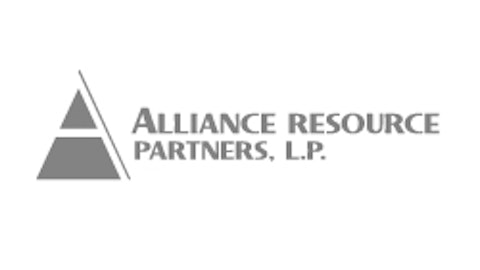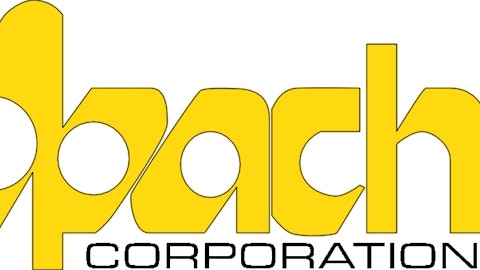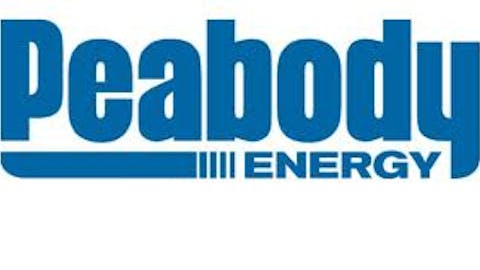Don’t chase dividend stocks to avoid bonds; buy them because you believe in the underlying businesses. Companies like Royal Dutch Shell plc (ADR) (NYSE:RDS.B), Alliance Resource Partners, L.P. (NASDAQ:ARLP), and Omega Healthcare Investors Inc (NYSE:OHI) are good examples of what to buy.

A Big Mistake
Jeffrey E. Gundlach, Chief Investment Officer of bond-focused DoubleLine, recently told CNBC that it was “a big mistake” to ditch bonds just to buy real estate investment trusts, limited partnerships, and high yielding stocks. “For people who are afraid bond yields will rise, these peripheral bond surrogates end up being the worst possible investments if your premise turns out to be right that interest rates are going to rise.”
Chasing yield is usually a mistake and Gundlach is correct that rising rates are likely to be bad for yield-focused stocks. However, that doesn’t mean investors shouldn’t be looking at such companies. In fact, there are some very good opportunities to buy unloved, high yielding, stocks with good businesses–and, more importantly, the potential for dividend increases over time. Treasuries can’t offer that.
On Sale: Big Oil
Royal Dutch Shell plc (ADR) (NYSE:RDS.B) is one of the largest integrated oil and natural gas companies in the world. It runs with big dogs like Exxon Mobil Corporation (NYSE:XOM) and BP plc (ADR) (NYSE:BP). However, with a recent yield of around 5.3%, it yields nearly twice as much as Exxon Mobil Corporation (NYSE:XOM) and about the same as oil-spill tarnished BP plc (ADR) (NYSE:BP).
Royal Dutch Shell plc (ADR) (NYSE:RDS.B) has notable operations in financially weak Europe, made a poorly timed decision to invest in U.S. natural gas, and has had trouble finding new oil reserves. None of these issues is unique to the company, and it is strong enough to weather all of them. Moreover, as natural gas prices rise, Royal Dutch Shell plc (ADR) (NYSE:RDS.B)’s gas push, a move Exxon Mobil Corporation (NYSE:XOM) also made, could quickly turn into a big asset.
The company operates in a commodity business, so the top and bottom lines are inherently volatile. That said, the company has a long history of increasing its dividend. While Royal Dutch Shell plc (ADR) (NYSE:RDS.B)’s profit margins are below those of Exxon Mobil Corporation (NYSE:XOM), they aren’t so low that it should yield nearly twice as much. Royal Dutch Shell plc (ADR) (NYSE:RDS.B) is a solid high-yield option with long-term appeal no matter what happens to interest rates.
Success Where Others Are Failing
Alliance Resource Partners, L.P. (NASDAQ:ARLP) is a coal-focused limited partnership. Coal is probably the single most unloved fuel source, even when compared to nuclear power. Increasingly stringent regulations on U.S. power plants and still low natural gas prices are likely to result in fewer coal fired electric power plants and continued pressure on coal miners over the near term.
Alliance Resource Partners, L.P. (NASDAQ:ARLP)’s coal is competitive with natural gas priced as low as $3. That strength has allowed the company to boost output while others have been forced to cut back. In fact, Alliance Resource Partners, L.P. (NASDAQ:ARLP) has been posting record results and expects 2013 to continue that trend. Alliance Resource Partners, L.P. (NASDAQ:ARLP) is succeeding where others are failing.
Longer term, coal is an important fuel source and demand is likely to stabilize in the United States and grow abroad. So coal prices are weak now but should pick up again over the next year or so. Moreover, gas prices, though still at historically low levels, have risen enough that coal use has begun to increase at U.S. utilities. The higher natural gas prices go, the more desirable coal becomes.
This limited partnership yields around 6.4% and has a long history of regular dividend increases. Although it has a high yield, low interest rates are only a small part of the reason. This top-notch performer in a struggling market should be on income investors’ buy lists.
Government Payments
Omega Healthcare Investors Inc (NYSE:OHI) is a real estate investment trust yielding around 5.9%. The company owns or holds mortgages on over 450 skilled nursing facilities and assisted living facilities in over 30 states. The aging of the baby boomers is going to notably increase the need for such facilities as the massive age group quickly flows into retirement.
The REIT’s yield is more than a percentage point above similarly focused Health Care REIT, Inc. (NYSE:HCN). The reason for that is an elevated exposure to third party payment issues, which increasingly means government payments. That’s a legitimate concern.
However, Omega Healthcare Investors Inc (NYSE:OHI) is about half the size of Health Care REIT. Its growth prospects are more material because smaller deals remain meaningful. And, like Health Care, it has increased its dividend on an annual basis for more than a decade. Although it’s unlikely that the top line will quadruple and the dividend more than double over the next decade like they did over the last one, continued growth is fairly certain. The third-party payment risk looks to be overblown.
Don’t Chase Yield
You shouldn’t chase yield, ever. But that doesn’t mean that some high-yield stocks aren’t good long-term investments right now. It just means you need to believe in the underlying story. Shell, Alliance Resource Partners, L.P. (NASDAQ:ARLP), and Omega Healthcare Investors Inc (NYSE:OHI) all have high yields and good stories to tell. Don’t let rising interest rates scare you away from good long-term investments.
The article The Right and Wrong Reasons to Buy Dividend Stocks originally appeared on Fool.com and is written by Reuben Brewer.
Reuben Brewer has no position in any stocks mentioned. The Motley Fool recommends Alliance Resource Partners, L.P.. Reuben is a member of The Motley Fool Blog Network — entries represent the personal opinion of the blogger and are not formally edited.
Copyright © 1995 – 2013 The Motley Fool, LLC. All rights reserved. The Motley Fool has a disclosure policy.




